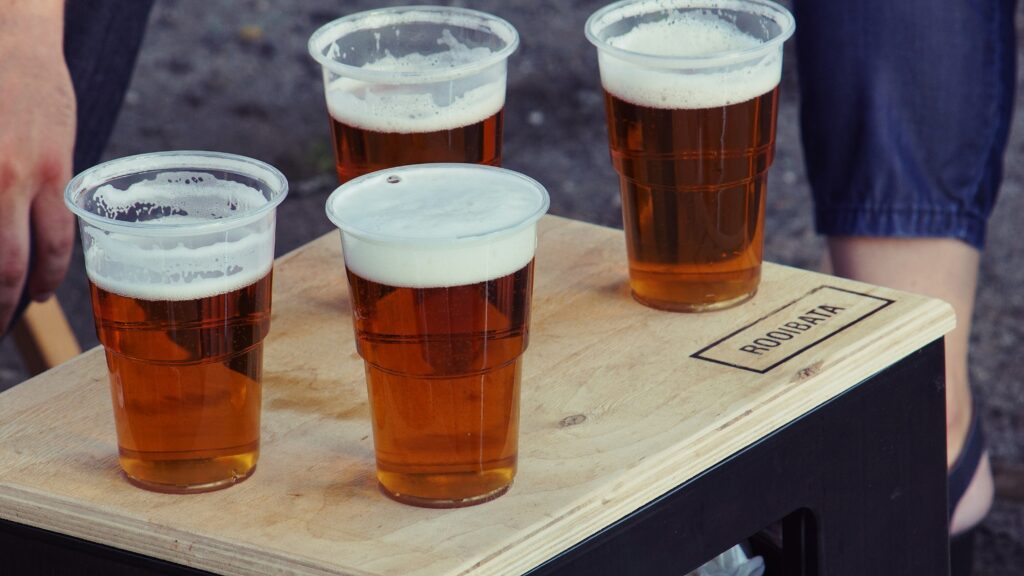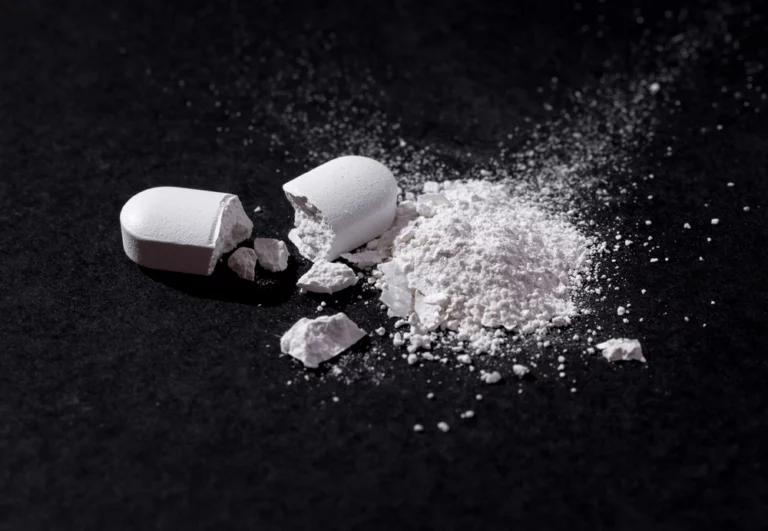The liver is an incredible organ, capable of regenerating and healing after damage caused by alcohol consumption. Recognizing the signs your liver is healing from alcohol presents hope and encouragement for those on the road to recovery.
This guide dives deeper how alcohol impacts the liver, identifies symptoms of liver damage, and discusses the signs indicating healing, helping you better understand your progress and motivating you toward continued abstinence.
Understanding How Alcohol Damages the Liver
Before exploring the healing process, it’s crucial to comprehend how alcohol affects liver function and structure.

How Does Alcohol Damage the Liver?
Frequent and excessive alcohol consumption can lead to a series of damaging effects on the liver. Alcohol is metabolized primarily in the liver, where it’s converted into toxic byproducts that can cause inflammation, fatty deposits, and cell death.
Over time, these effects may lead to liver conditions such as fatty liver disease, alcoholic hepatitis, and ultimately cirrhosis. Each stage of damage disrupts the liver’s ability to perform vital functions, including detoxification, metabolism, and nutrient processing.
What Are the Signs Your Liver Is Being Damaged by Alcohol?
Identifying liver damage early on can prevent further harm. Common signs of liver damage from alcohol include jaundice (yellowing of the skin and eyes), abdominal pain and swelling, chronic fatigue, changes in appetite, nausea or vomiting, and dark urine. If you experience any of these symptoms, it’s essential to seek medical advice promptly.
Signs Your Liver Is Healing from Alcohol
Healing from alcohol-related liver damage is possible with abstinence, healthy lifestyle choices, and sometimes medical intervention. Recognizing these signs your liver is healing from alcohol can affirm the progress on your journey to recovery.
Improvement in Liver Function Tests
A clear sign that your liver is healing from alcohol is improved liver function tests. Blood tests measuring liver enzymes, bilirubin, and other key indicators can show a significant decrease toward normal levels, suggesting that liver inflammation is reducing and overall function is improving.
These improvements are among the most reliable signs your liver is healing from alcohol, as they reflect the organ’s ability to regenerate and repair itself after the damage caused by excessive alcohol consumption.
Another one of the signs your liver is healing from alcohol is a noticeable reduction in symptoms such as fatigue, jaundice, and abdominal pain.
As liver function improves, you may also experience better digestion, clearer skin, and increased energy levels, all of which are positive indicators of recovery. Additionally, maintaining a healthy lifestyle, including a balanced diet and abstaining from alcohol, can further accelerate the healing process and provide more signs your liver is healing from alcohol.
Regular monitoring through medical check-ups is essential to track the progress of your liver function. If your liver function tests continue to show improvement over time, it is a strong indication that your liver is on the path to recovery. These consistent results, along with the alleviation of physical symptoms, are key signs your liver is healing from alcohol.
Remember, the liver is a remarkably resilient organ, and with the right care and attention, it can often recover significantly, especially when you recognize and act on the signs your liver is healing from alcohol.

Reduction in Jaundice
As the liver starts to heal from alcohol, one of the most visible and encouraging signs your liver is healing from alcohol is the gradual reduction of jaundice. Jaundice, characterized by the yellowing of the skin and eyes, occurs when the liver is unable to effectively process bilirubin, a substance in bile.
As the liver begins to recover and regenerate, its ability to filter and process bilirubin improves, leading to a noticeable decrease in these symptoms. This reduction in jaundice is one of the key signs your liver is healing from alcohol, as it reflects the organ’s restored functionality and reduced inflammation.
These changes occur as the liver becomes more efficient at detoxifying the body and metabolizing nutrients. Over time, you may also notice that your skin appears healthier and less discolored, which is another one of the positive signs your liver is healing from alcohol.
It’s important to note that the healing process takes time and consistency. Abstaining from alcohol, eating a nutrient-rich diet, and staying hydrated are crucial steps to support liver recovery.
Regular medical check-ups can also help track progress, as blood tests may show declining bilirubin levels and improved liver enzyme readings, further confirming the signs your liver is healing from alcohol.
By paying attention to these physical and medical indicators, you can gain reassurance that your liver is on the path to recovery and regaining its vital functions.
Decreased Swelling and Abdominal Discomfort
Healing livers often result in decreased abdominal swelling and discomfort, which are among the most noticeable signs your liver is healing from alcohol. When the liver is damaged by excessive alcohol consumption, it can struggle to perform its essential functions, such as filtering toxins and regulating fluid balance in the body.
This dysfunction can lead to fluid retention, a condition known as ascites, which causes abdominal swelling and discomfort. However, as the liver begins to heal and regain its ability to function properly, fluid retention improves, and inflammation recedes, providing significant relief from bloating and pain. These changes are clear signs your liver is healing from alcohol and indicate that the organ is on the path to recovery.
As liver function is restored, the body becomes more efficient at processing nutrients and eliminating toxins, which can lead to better overall health. You may also notice that your appetite improves and that you feel less fatigued, both of which are positive signs your liver is healing from alcohol.
It’s important to support the healing process by maintaining a healthy lifestyle. This includes abstaining from alcohol, eating a balanced diet rich in fruits, vegetables, and lean proteins, and staying hydrated. Regular exercise can also help improve circulation and support liver function.
By paying attention to these signs your liver is healing from alcohol and making the necessary lifestyle changes, you can help ensure that your liver continues to recover and regain its full functionality.
Monitoring these improvements, along with regular medical check-ups, can provide further confirmation that your liver and stomach is healing and that you are moving toward better health. Recognizing and acting on these signs your liver is healing from alcohol is crucial for long-term recovery and well-being.

Supporting Liver Healing and Sustained Recovery
While the liver’s healing capabilities are remarkable, certain lifestyle changes can facilitate and enhance the recovery process.
Embrace a Healthy Diet
A diet rich in fruits, vegetables, lean proteins, and whole grains supports liver health. Avoid processed foods, excess sugar, and saturated fats, which can exacerbate liver challenges.
Stay Hydrated
Adequate hydration helps the liver flush toxins and perform its functions more effectively. Aim to drink plenty of water throughout the day to support detoxification.
Regular Exercise
Engaging in regular physical activity can help reduce liver fat and enhance overall liver function, contributing to faster recovery.
FAQs About Liver Healing from Alcohol
Understanding common questions about liver healing can help clarify your experiences and guide your journey.
What Are the Signs Your Liver Is Healing from Alcohol?
Signs of healing include improvement in liver function tests, reduction in jaundice, increased energy, and decreased abdominal swelling. These indicators highlight that the liver is repairing itself and restoring normal functions.
How Long Does It Take for the Liver to Heal from Alcohol?
The healing timeline varies. Mild liver damage can start to heal within weeks of abstinence, while more severe damage like cirrhosis may require months to years, with regular monitoring by healthcare professionals.

Can Lifestyle Changes Help My Liver Heal?
Yes, adopting a healthy lifestyle with a nutritious diet, regular exercise, and proper hydration can significantly aid liver healing and encourage sustained recovery from alcohol damage. The liver is a remarkably resilient organ, and with the right care, it has the ability to regenerate and repair itself, even after prolonged exposure to alcohol.
A balanced diet rich in essential nutrients, such as antioxidants, vitamins, and minerals, can provide the liver with the building blocks it needs to heal.
Foods like leafy greens, berries, nuts, fatty fish, and whole grains are particularly beneficial because they help reduce inflammation, support detoxification, and promote cell repair. These dietary choices, combined with avoiding processed foods, excessive sugar, and alcohol, are critical steps in fostering liver recovery.
Regular exercise is another powerful tool in supporting liver health. Physical activity helps improve blood circulation, which enhances the liver’s ability to filter toxins and deliver nutrients throughout the body. Exercise also aids in maintaining a healthy weight, reducing the risk of fatty liver disease, which can further complicate liver healing.
Even moderate activities like walking, yoga, or swimming can make a significant difference in promoting liver function and overall well-being.
Proper hydration is equally important in the healing process. Water helps flush toxins from the body and ensures that the liver can efficiently perform its detoxification functions. Staying hydrated also supports digestion and nutrient absorption, which are essential for liver repair. Herbal teas, such as dandelion root or milk thistle tea, can also be beneficial, as they are known for their liver-supporting properties.
In addition to these lifestyle changes, managing stress and getting adequate sleep are vital for liver recovery. Chronic stress and poor sleep can impair the body’s ability to heal, so incorporating relaxation techniques like meditation, deep breathing, or mindfulness can further support the liver’s regeneration process.
By committing to these healthy habits, you create an environment that not only aids liver healing but also encourages long-term recovery and overall health. Over time, you may notice improvements in energy levels, digestion, skin health, and overall vitality, all of which are indicators that your liver is healing and functioning more effectively.
Consistency in these practices is key, as sustained recovery from alcohol damage requires ongoing care and attention to maintain the liver’s health and resilience.
Embrace the Journey to Recovery
Recognizing the signs your liver is healing from alcohol invites renewed hope and dedication to your recovery journey. Progress is possible with abstinence, lifestyle adjustments, and medical support if needed. If you are striving to support your liver healing, consider reaching out to Asheville Detox or call us today to explore tailored guidance and resources that can help you.






